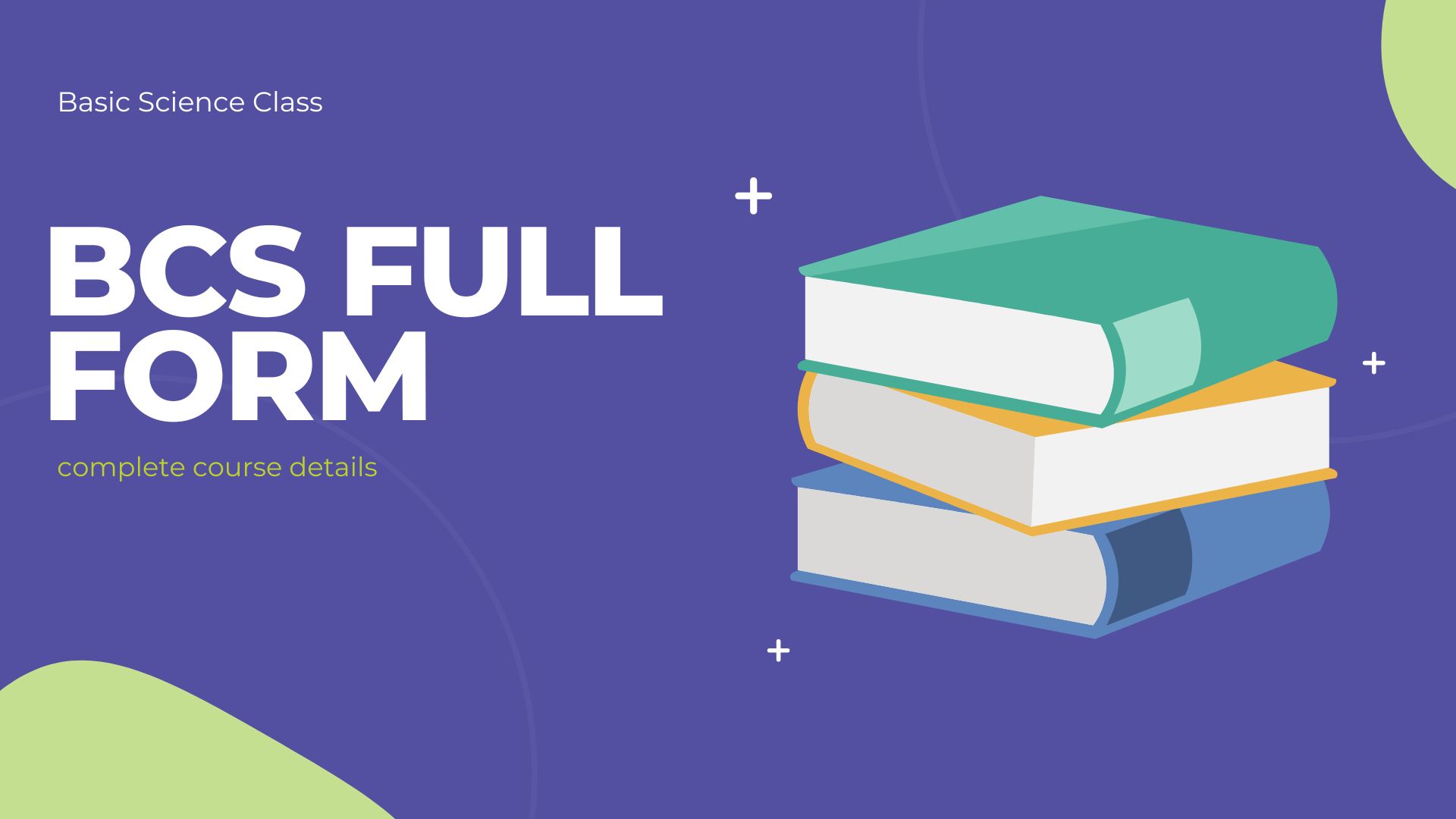Choosing the right degree is one of the most important decisions for students aspiring to build a successful career in the tech industry. Two popular undergraduate programs, BCA (Bachelor of Computer Applications) and BCS (Bachelor of Computer Science), often lead to confusion among students. Both degrees are excellent for launching a career in information technology and computer science, but they differ in focus, curriculum, and career outcomes.
In this article, we will explore the differences and similarities between BCA and BCS, discuss their suitability for various tech careers, and provide tips to help you decide which degree is better aligned with your goals. The article also includes insights into the BCS full form and career opportunities associated with each degree.
What Is BCA?
BCA (Bachelor of Computer Applications) is a three-year undergraduate program designed to provide foundational knowledge and skills in computer applications. The curriculum emphasizes practical learning and covers topics such as:
- Programming languages (C++, Java, Python)
- Web development
- Database management
- Networking
- Software testing
BCA is ideal for students who are interested in application development, software testing, and IT management.
What Is BCS?
The BCS full form is Bachelor of Computer Science. This three-year undergraduate program delves deeper into the theoretical and technical aspects of computer science. It focuses on core topics such as:
- Algorithms and data structures
- Operating systems
- Software engineering
- Artificial intelligence
- Cybersecurity
- Networking
BCS prepares students for roles in software development, research, and emerging tech fields like AI and machine learning.
Key Differences Between BCA and BCS
1. Curriculum Focus
- BCA: The program focuses on application development and practical skills required for roles like software developer, web designer, and IT support specialist.
- BCS: This degree offers a theoretical and technical approach, making it suitable for students who want to specialize in areas like software engineering, data science, or AI.
2. Core Subjects
- BCA: Emphasizes programming languages, web technologies, and IT fundamentals.
- BCS: Covers advanced topics like algorithms, machine learning, and computer architecture.
3. Career Opportunities
- BCA Graduates: Often pursue careers in application development, IT support, or web development.
- BCS Graduates: Have broader career options, including roles in software engineering, research, and emerging technologies.
4. Higher Education
- BCA: Graduates often pursue an MCA (Master of Computer Applications) for advanced learning.
- BCS: Graduates may opt for an MSc in Computer Science or specialized certifications in AI, data analytics, or cloud computing.
5. Industry Orientation
- BCA: Industry-oriented, with a focus on immediate job-readiness.
- BCS: Academically inclined, offering deeper insights into the field of computer science.
Similarities Between BCA and BCS
- Duration: Both programs are typically three years long.
- Career Scope: Both degrees open doors to opportunities in IT and tech.
- Skill Development: Students learn programming, software development, and IT concepts in both programs.
- Eligibility: Both programs usually require a 10+2 qualification with mathematics or computer science as a subject.
Which Degree Is More Suitable for Your Tech Career?
Choose BCA If You:
- Prefer practical, hands-on learning over theoretical concepts.
- Are interested in application development, IT management, or web design.
- Plan to enter the workforce immediately after graduation.
- Want a simpler curriculum focused on job-readiness.
Choose BCS If You:
- Have a strong interest in understanding the core principles of computer science.
- Aspire to work in advanced fields like AI, data science, or cybersecurity.
- Plan to pursue higher studies or research.
- Are interested in a technically intensive and academically challenging curriculum.
Career Opportunities for BCA Graduates
- Software Developer: Design and develop applications for businesses or consumers.
- Web Designer: Build and maintain websites using HTML, CSS, and JavaScript.
- IT Support Specialist: Troubleshoot and resolve technical issues.
- Database Administrator: Manage and secure organizational data.
- Digital Marketing Specialist: Use technology and analytics for marketing strategies.
Career Opportunities for BCS Graduates
- Software Engineer: Develop software systems and solutions.
- AI Engineer: Work on machine learning algorithms and AI technologies.
- Data Scientist: Analyze data for decision-making and predictive modeling.
- Cybersecurity Specialist: Protect networks and systems from cyber threats.
- Network Architect: Design and maintain communication networks.
Which Degree Is More Valuable in the Job Market?
Both BCA and BCS are valued in the job market, but their relevance depends on the specific role and industry.
- BCA Graduates: Excel in roles requiring practical and application-focused skills.
- BCS Graduates: Are better suited for research-based roles and advanced technical positions.
Tips for Making the Right Choice
- Assess Your Career Goals: Think about where you see yourself in five to ten years.
- Consider Your Interests: Are you more inclined toward practical applications or theoretical concepts?
- Research Colleges: Choose institutions with strong faculty, infrastructure, and placement records for both programs.
- Consult Professionals: Seek advice from alumni or professionals in the tech field.
- Look at Course Structure: Review the syllabus of both programs to see which aligns better with your interests.
Conclusion
Both BCA and BCS are excellent choices for building a career in technology, but their suitability depends on your career aspirations, interests, and skills. The BCS full form, Bachelor of Computer Science, offers a deeper and more technical understanding of computer science, making it ideal for students aiming for advanced careers in software engineering, AI, and data science. On the other hand, BCA is a more application-focused program, better suited for students looking to enter the job market quickly with practical IT skills.
By carefully evaluating your goals and interests, you can choose the degree that best aligns with your vision for the future.
FAQs
- What is the BCS full form?
The BCS full form is Bachelor of Computer Science, an undergraduate program focusing on core computer science principles and technologies. - Which degree is easier, BCA or BCS?
BCA is generally considered easier as it focuses more on practical applications, whereas BCS involves technical and theoretical concepts that are more challenging. - Can I pursue a master’s degree after BCS or BCA?
Yes, you can pursue advanced degrees like MSc in Computer Science, MCA, or specialized certifications after completing either BCA or BCS. - Which degree has better job prospects, BCA or BCS?
Both have good job prospects, but BCS offers broader opportunities in advanced tech fields, while BCA is ideal for application-focused roles. - What kind of skills will I gain from a BCS degree?
A BCS degree provides skills in programming, problem-solving, software development, algorithms, AI, and data analytics.


